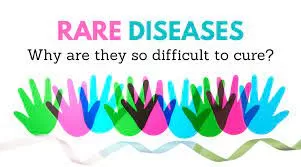
A digital interactive decision-making tool designed to tailor menopause care has garnered praise from primary care clinicians in the United Kingdom. They believe it has the potential to enhance patient care and streamline office visits. Known as Wellspring, this tool assists in interpreting menopause guidelines provided by the UK’s National Institute for Health and Care Excellence (NICE) while promoting collaborative decision-making through evidence-based data.
Aini Kamal, MSc, from University College London, UK, highlighted the complexity surrounding access to hormone replacement therapy (HRT) and the decision-making process for treating menopausal symptoms. She noted a knowledge and confidence gap among healthcare professionals that contributes to hesitancy in prescribing HRT. These findings were presented at the 2023 annual meeting of the Royal College of General Practitioners.
In their evaluation of Wellspring, Kamal, along with Daniel Reisel, MBBS, PhD, a gynecologist at UCL, and their colleagues engaged doctors, nurses, and pharmacists. Reisel emphasized the importance of educating women about their symptoms to empower them in the decision-making process.
The survey, completed by 280 participants primarily consisting of GPs with extensive prescribing experience, revealed that 93% found the information aligned with national guidelines in the tool. Additionally, 97% expressed their intention to recommend this decision aid to fellow healthcare professionals. Nearly all respondents saw potential in using the tool either during in-person clinic visits or as an adjunct to virtual sessions.
Louise Newson, MBChB, who oversees the UK’s largest menopause clinic, pointed out the time constraints often faced in primary care appointments. She highlighted the challenge of addressing multiple concerns in a single consultation. Newson emphasized that empowering women with knowledge about menopause symptoms leads to more efficient consultations.
The digital tool, accessible to both doctors and patients, assists women in understanding and addressing their symptoms, ultimately making GP visits more productive. Ed Russell-Smith, MBChB, a GP in Scotland, commended the tool for its structured approach and provision of modern treatment options and resources for patients.
While acknowledging the benefits of HRT, Russell-Smith also emphasized the importance of considering potential risks associated with its use. He noted that Wellspring could aid in applying general principles to individual patients to personalize treatment plans.
It’s worth mentioning that Reisel, Newson, Kamal, and Russell-Smith disclosed no relevant financial relationships. The development of the Wellspring Decision Aid received support from UCL’s Institute for Women’s Health. Research conducted at the Newson Health clinic is performed through its nonprofit arm, which is independent of pharmaceutical industry involvement.










